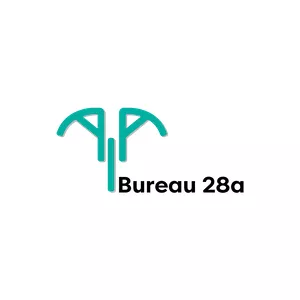The Bill, On Energetics, passed on 24 October 2023 the third reading in the parliament. Once approved into law, it will replace the 1998 Law No. 541-IQ of the same name and subject. The Bill proposes a general framework for the energy industry (energetics), mechanisms for ensuring energy security, and creating a healthy competitive environment within the industry.
The energy and energy resources covered by the Bill are all energy output, including fuel, renewable energy, electricity, thermal, and other forms of energy. The following are the covered operations:
- exploration of energy resources;
- development and production of energy resources;
- refining of energy resources;
- production of energy;
- storage of energy;
- transportation (transmission) of energy;
- distribution of energy;
- import and export of energy;
- wholesale and/or retail sale of energy; and
- organization of functioning of natural gas and electricity markets.
The Bill will not apply to ground (road and rail), air, and water transportation of energy as well as to import, export, production, storage, and processing of nuclear materials. The operations are run by energy subjects, an entity or individual running any of the covered operations.
Energy operations that require a license and/or permit are carried out based on such licenses and/or permits. The following operations are carried out based on an agreement between the Government and a licensed energy subject: (i) exploration, development, and production of hydrocarbon reserves, (ii) transportation of oil and gas by export pipelines, (iii) transfer of power and gas distribution grids and gas storages into management, and (iv) others listed in laws governing operations in various sectors of energy industry.
In relation to energy agreements already made, the Bill has a specific carveout for production sharing, and agreements for transportation through export pipelines, of oil and gas, and to relations under other agreements made under those agreements, all approved into laws of the Republic, – the Bill will apply to them only in the cases provided for in those agreements and not contradicting them.
An appointed regulator will oversee energy operations. Energy consumers will consist of household (individual consumers of electricity, heating, and natural gas) and non-household as well as free (those consuming electricity in excess of an established threshold, also, cf. Framework for Power 2 Market) and non-free consumers. A free consumer may choose an energy supplier. A supplier for non-free consumers is determined by the Government.
Energy subjects and consumers may purchase goods, works, and services of a natural or state monopoly engaged in the energy operations on terms and conditions approved by regulatory acts at prices regulated by the Government. Prices for the supplies of natural monopolies are established in accordance with the Law, On Natural Monopolies. Subjects of the state monopoly or a manner of pricing their supplies are not defined.
Energy subjects shall keep an accounting report separately for each regulated and non-regulated price operations. Statements for each operation and for profit and loss should be prepared separately. Further, the subjects ensure an annual review of their financial reports by an independent auditor as well as a publication of the reports.
The energy balance is a system of accounting indicators for individual types of energy in order to ensure energy security and predict and fulfill an energy demand and supply. The balance is prepared by agency(ies) to be approved by the Government based on information collected from energy subjects as well as data of energy consumption.
The Government will adopt short-term (up to five-year), medium-term (five- to ten-year), and long-term (more than ten-year) state programs for sustainable development of the energy industry.
The Bill will enter into force from the date of its publication. Articles 15.3 (electricity supply of non-free consumers) and 15.4 (a right of free consumers to choose energy supplier) of the Bill come into force on 1 July 2025 and Articles 8 (the regulator), 10.2 (restricting an energy subject from procuring from state and natural monopolies) and the second sentence of Article 15.6 (information provided to consumers by energy suppliers) come into force on 1 July 2028.
The content of this article is intended to provide a general guide to the subject matter. Specialist advice should be sought about your specific circumstances.

